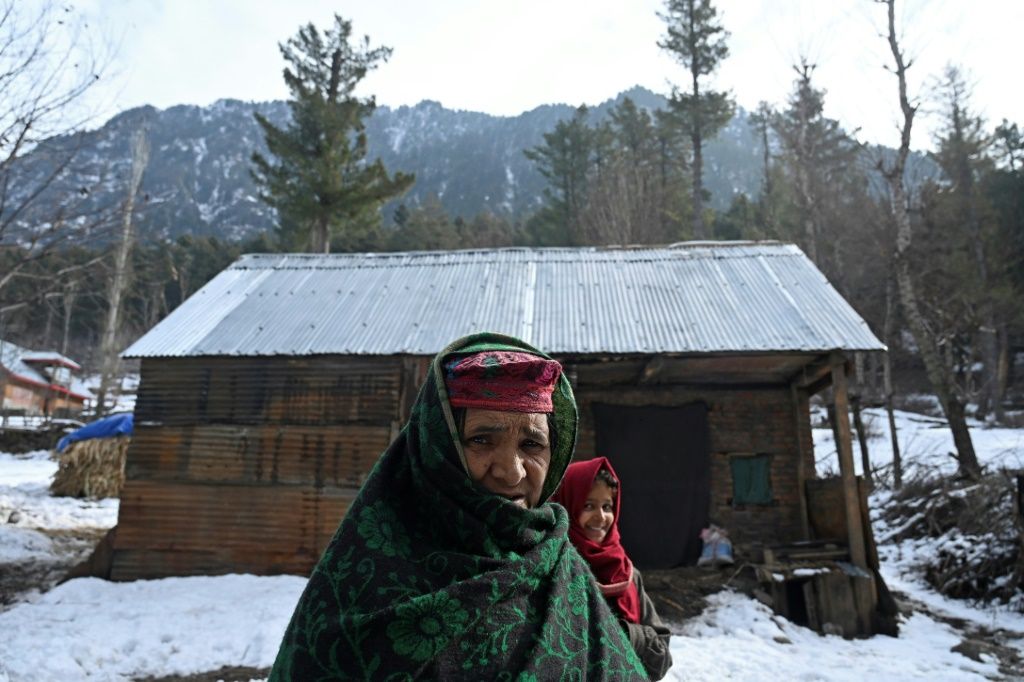KEY POINTS
- India’s Supreme Court upheld the validity of the government’s 2019 decision to abrogate Article 370
- The court also ordered the country’s election commission to hold local legislative polls in the region by next Sept. 30
- Article 370 allowed residents of the erstwhile state to live under different laws from the rest of the country in matters relating to citizenship and property ownership
India’s top court upheld a 2019 decision by the ruling government to strip the former state of Jammu and Kashmir of its special status.
In the landmark verdict Monday, the country’s Supreme Court (SC) unanimously upheld the validity of the 2019 decision to abrogate the Indian constitution’s Article 370, which gave significant autonomy to the disputed Himalayan region.
The five-judge constitutional bench of the Supreme Court said the special status was a “temporary provision,” and ordered that the region should be restored as a state “at the earliest.”
The order comes after over a dozen petitions challenged the Indian Prime Minister Narendra Modi government’s decision to revoke Article 370 and split the erstwhile state into two federally administered territories. Petitioners argued that the state’s reorganization into Jammu and Kashmir (J&K) and Ladakh as federally administered territories violated India’s constitution.
Priyanka Singh, Associate Fellow at Manohar Parrikar Institute for Defense Studies and Analyses (MP-IDSA), New Delhi, said the Monday verdict upheld the government’s act as “constitutionally permissible.”
“The SC verdict has in a way sealed the fate of the former state of J&K as an integral part of the Indian Union,” Singh told International Business Times.
“The verdict is a final closure after which both J&K and the government of India can move forward charting a future course that is better coalesced and fulfills the well-being of both. The verdict also aims to end ambiguities and doubt on the detractors’ minds by its detailed constitutional explanation of the August 2019 decision,” she added.
For about 70 years, Article 370 allowed the region to have its own constitution, a separate flag and freedom to make laws for its people, while the federal government handled foreign affairs, defense and communications.
Provisions under the article forbade outsiders or non-Kashmiris from permanently settling in the erstwhile state, buying land, holding local government jobs or winning education scholarships in the region.
Hence, under Article 370, the residents of J&K lived under different laws from the rest of the country in matters relating to citizenship and property ownership.
The region has also seen widespread unrest and was the reason behind two of the three wars fought between neighbors India and Pakistan.
The stripping of the special status in 2019, which was controversially imposed under an unprecedented security and communication clampdown that stretched for months, meant people from the rest of India could acquire property and permanently settle in J&K.
As part of the Monday verdict, the SC not only said J&K should return to being a state at the earliest opportunity, but also ordered the country’s election commission to hold local legislative polls in the region by next Sept. 30.
Ladakh will remain a federal territory as per the Monday order.
“I believe this verdict has cleared all the fog around the constitutionality of the abrogation of J&K’s special status. For long, people have been denied of rights available for everyone else holding an Indian citizenship … This is only the start of a long process which has just begun,” security analyst Tejusvi Shukla told IBT.
Since the revocation of Article 370 in 2019, the Modi government has maintained the region has experienced an unprecedented era of peace, progress and prosperity.
More investments were announced for the region in the industrial, healthcare, education and tourism sectors.
Singh said there have also been initiatives and efforts to “usher in harmony amongst communities.”
“There is marked improvement in the security situation despite repeated attempts by Pak-based terrorist groups to stage attacks inside J&K,” she said. “Besides, the last couple of years have brought in massive improvement in infrastructure and development in the former state- the Srinagar smart city project perceived exceedingly well by people is only one amongst other distinct development works.”
The Monday ruling comes ahead of India’s general elections scheduled for next year. The SC verdict is expected to boost the image of Modi’s Hindu nationalist Bharatiya Janata Party for the upcoming national polls.
“As for the effect on India’s political landscape, the verdict is bound to boost confidence and morale of the Union government that undertook this bold initiative despite feared exigencies that could occur in the aftermath, including the international community’s reaction. The verdict ending uncertainties is likely to transform the ties between the central govt. and J&K making it more constructive, worthwhile and fruitful,” Singh said.
“Most importantly, the verdict honors the democratic aspirations of the people of J&K by directing the government to hold time bound elections and restore statehood,” she added.
Top opposition leaders from Jammu and Kashmir expressed disappointment in the Monday ruling.
The relationship between India and J&K has been declared temporary and broken by the order, said former chief minister of J&K Mehbooba Mufti.
“This is not our defeat, but a defeat of the idea of India…,” she said.
“I would also like to emphasize that our efforts do not end here. We respect the Supreme Court and its decision, but from here on, we have other means and we will continue to pursue them. Whether we can take the legal route again, we will study the judgment and ask our lawyers,” said Omar Abdullah, another former chief minister of J&K.







